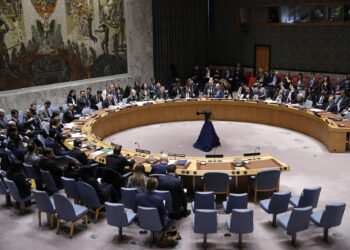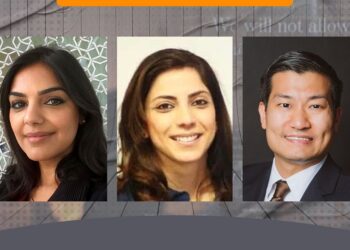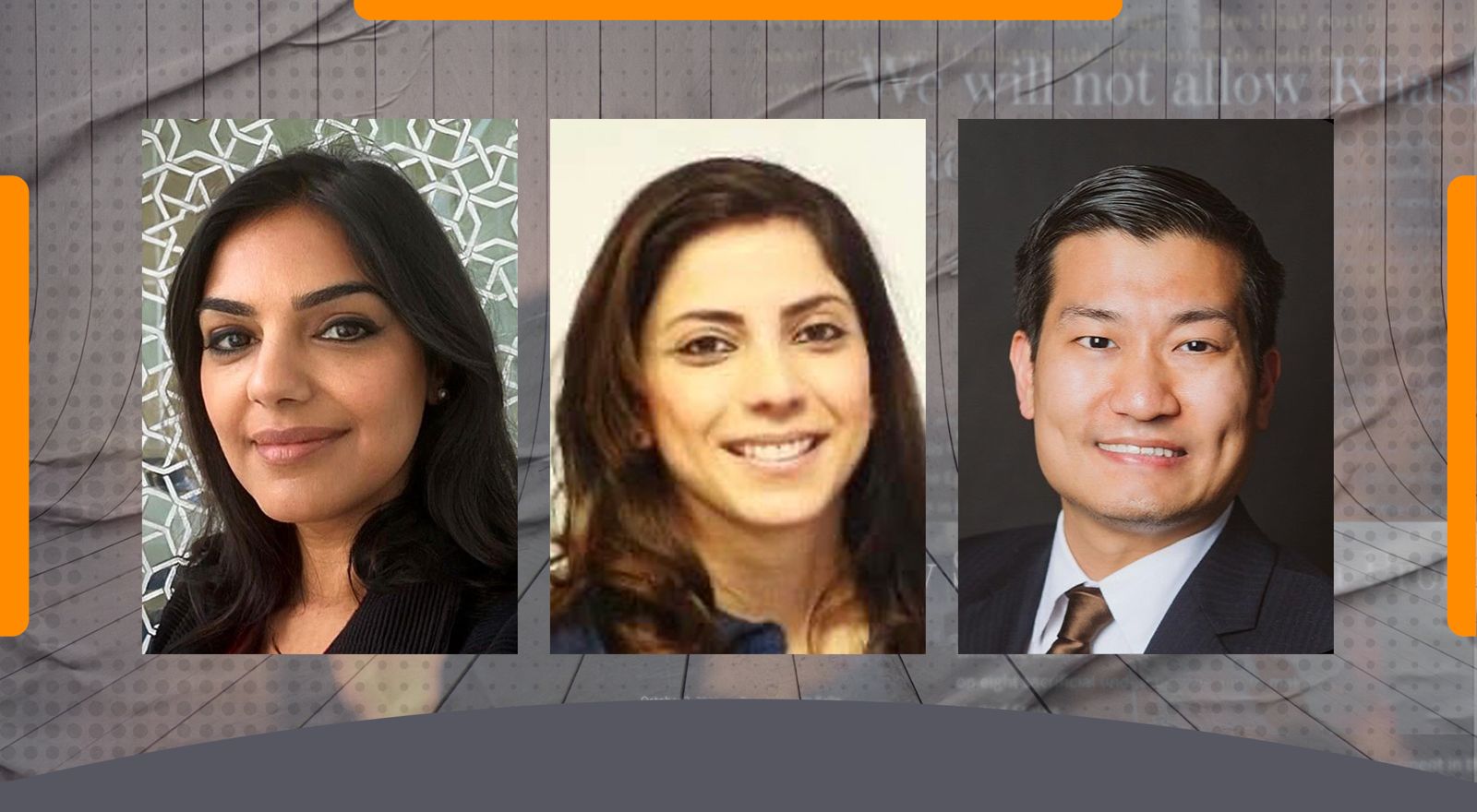Hamad al-Shamsi is the Executive Director of the Emirates Detainees Advocacy Center (EDAC), an organization that supports prisoners of conscience in the United Arab Emirates.
عربي
On Sept. 13, 2021, the Cabinet of the United Arab Emirates, its chief executive body, issued a resolution to include my name, along with three other Emiratis—all of whom are political dissidents now living in exile, just like me—on "its approved list of persons and organizations supporting terrorism." The UAE claimed the designations were "to target and disrupt networks associated with financing terrorism." The decision was not entirely surprising to me or my colleagues—because the authorities in the UAE have been using its notorious counterterrorism law as a weapon against anyone who opposes them. If you are not with us, the government maintains, you are a terrorist.
In fact, I'm an Emirati human rights defender, living in exile in Europe. I direct a non-profit organization, the Emirates Detainees Advocacy Center, that seeks to defend prisoners of conscience detained in the UAE. Nine years ago, I was accused in absentia of vague charges related to national security, along with 93 other Emirati dissidents and political activists. Together, we became known as the UAE 94. I was also a member of the Reform and Social Guidance Association, al-Islah, which had been operating in the UAE as a government-approved civil society organization since 1974, until it was banned in 2014.
Right after I heard the news of my terrorist designation, friends called me with the same questions I had. What was the Emirati government's aim? What would it gain from putting your name on a terrorism list while you are overseas? Many of my friends told me not to be too worried, because the UAE's national terrorism list isn't even recognized in Europe and the United States, and therefore it wasn't worth the paper it was written on.
The international community, especially countries that consider the UAE a reliable counterterrorism partner, must pressure its government to stop using terrorism as a pretext to pursue its political opponents.
- Hamad al-Shamsi
But the answers to these questions came soon enough. Hours after the resolution was issued, my name and photo, and those of my fellow Emiratis, were plastered in local and state media in the UAE and in the international press. It became abundantly clear that designating us as terrorists was a new smear tactic for the Emirati government, aimed at intimidating us and preventing others, both inside and outside the UAE, from communicating and dealing with us under the threat of prosecution for supporting terrorism, which could carry a penalty of up to 10 years in prison in the UAE. Some friends and colleagues have ceased all contact, fearful of communicating with anyone on the government's list. Even our own families have been threatened with prosecution in the UAE if they are found "communicating with terrorists."
More ominously, Interpol may soon be weaponized against us. The international policing agency is now headed by Ahmed Nasser al-Raisi, an Emirati general from the Interior Ministry. There are increasing concerns that, with al-Raisi in charge, Interpol could issue "red notices" under UAE pressure to ban us from traveling and restrict our movements. Just recently, Serbia extradited a Bahraini dissident after Interpol issued a red notice at the request of Bahrain—despite an injunction by the European Court of Human Rights to halt his extradition pending more information about his case, in particular "the possible risks of torture and/or ill-treatment that the applicant would face if extradited to Bahrain."
Following al-Raisi's appointment as Interpol's president last November, I received a series of threatening messages through social media, saying that my arrest was now "only a matter of time." It was a new form of harassment and intimidation. Those messages came from both real and fake accounts on Twitter, some of them influential figures inside the UAE.
This is not an isolated incident, but part of the cycle of suffering that Emiratis face from our own government, which claims it is "combating terrorism." That word, terrorism, has become the easiest way for the UAE to justify violating its own citizens' rights and freedoms, legitimized through the so-called anti-terrorism law, which is really a tool to crush human rights. That law, passed in 2014, applies such a sweeping definition of terrorism it is no surprise this repression is the outcome. According to the law, anyone who is "stirring panic among a group of people" and "antagonizing the state" can be considered a "terrorist." The law gave the UAE's Cabinet the authority to issue "lists of terrorist organizations or persons that pose a threat to the State," like the one I am on.
Even our own families have been threatened with prosecution in the UAE if they are found "communicating with terrorists."
- Hamad al-Shamsi
Is it any surprise that lawyers, journalists and human rights defenders in the UAE are increasingly being labeled as terrorists, and any peaceful activism as acts of terror? Emirati authorities have gone even further and designated some human rights groups as terrorist organizations, such as Alkarama, a Geneva-based NGO. The UAE also detained and sentenced Abdul Rahman al-Nahhas, a Syrian human rights defender residing in the UAE since 2013, to 10 years in prison on charges of "providing false information about the country to an international organization" and "communicating with terrorist organizations," all related to his contacts with Alkarama.
Despite warnings from human rights organizations about the anti-terrorism law and their continued demands that it be amended, the Emirati government has continued to use it as a weapon against any political opposition. Initially, the rights of individuals accused of "terrorist" acts were violated, as many were detained and some even allegedly tortured in secret prisons. The situation then devolved into the pursuit of peaceful dissidents and human rights defenders. Now, the law is being used to prosecute and harass political exiles and opposition figures abroad.
The damage done by the UAE's anti-terrorism law is clear, from unwarranted arrests and human rights abuses, to the destruction of a person's livelihood, even if they have fled the UAE. These violations of basic rights and freedoms ought to serve as a warning to the international community that such sweeping laws have not only departed from their stated counterterrorism objectives, but have become a dangerous tool in the hands of authoritarian regimes that can accuse anyone they want of terrorism, no matter the cost to their lives and those of their families.
Despite the best efforts of the United Nations Human Rights Council and Fionnuala Ní Aoláin, the U.N.'s special rapporteur on human rights and countering terrorism, to highlight the abuses taking place in the UAE under the cover of counterterrorism, they are clearly not enough to deter the Emirati government. Even with statements of condemnation and Ní Aoláin's repeated requests to visit the UAE to ensure that its anti-terrorism law complies with international standards, Emirati authorities continue to disregard her inquiries and carry on with business as usual.
The UAE is seizing on the specter of terrorism to silence any dissent at home. The international community, especially countries that consider the UAE a reliable counterterrorism partner, must pressure its government to respect human rights and stop using terrorism as a pretext to pursue its political opponents.






































